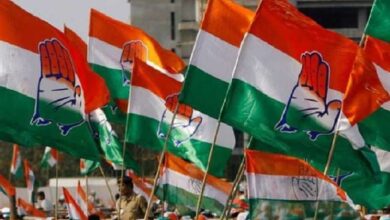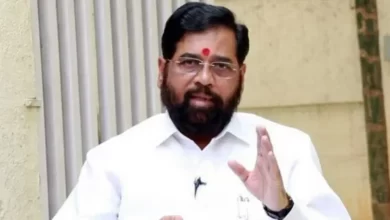suffocation and suffocation of inaction

The periodic inundation of Chennai and Mumbai and the toxic air of Delhi are such challenges before the governments, which neither the politicians have the zeal to solve nor the bureaucrats responsible for implementation have so far shown the requisite capacity.
Jagmohan Singh Rajput
The periodic inundation of Chennai and Mumbai and the toxic air of Delhi are such challenges before the governments, which neither the politicians have the zeal to solve nor the bureaucrats responsible for implementation have so far shown the requisite capacity. But solutions have to be found, responsibilities have to be clearly defined and passing the responsibility on to others has to be considered as unacceptable incompetence.
No one has any option to breathe. It is repeated almost daily in the media that Delhi’s air is polluted to an alarming level, toxic. It presents itself in such a way that there is no such problem in other cities. Delhi tops the top ten most polluted cities in the world, Kolkata fourth and Mumbai sixth. Just a few days ago, the air of Ghaziabad was estimated to be more toxic than Delhi. Over the years, Delhi and its surrounding areas have been repeatedly accused of pollution, emergency meetings are held, the matter reaches the Supreme Court. It all feels as if a play is being re-staged after a year, with everyone faithfully reprising their old roles!
The Supreme Court is unable to do anything except reprimand, so that the governments and bureaucrats accept their duties and responsibilities seriously and perform them. It is being heard for many years that the machines are going to reach the farmers to make good use of the stubble, but have not reached yet. The Delhi government heavily promoted such an anti-inflammatory solution, which, just by sprinkling it on the stubble, turns it into manure. Neither the effect of machines was visible, nor that much-hyped solution – Bio Decomposer.
Even the Supreme Court has had to say that the bureaucracy wants the court to decide, and that it should implement it! The bench of the Hon’ble Judges also observed that television debates are creating more pollution, everyone has their own agenda. And for this reason, different governments and organizations related to different aspects of environmental protection are unable to establish a lively working dialogue among themselves. The present situation is that no one is responsible for Delhi’s air pollution.
It is an indisputable fact that the natural tendency of man is to give a better future to his future generation than himself. For how many years young children are forced to breathe poisonous air. The expectation is that every government, institution and competent person of the society should go ahead and fulfill their role honestly in preventing pollution to their full potential. Projects of development and progress in a democracy are built on the possibility of successful implementation, and their successful implementation is expected only through cooperation and dialogue at every level. The situation at this time is that from policy making to implementation, without any exception, they themselves are breathing poisonous air like any other. It will be successful only when all the people participating in the concerted efforts are capable of discharging their moral responsibility.
More than this, it will be necessary that the discharge of responsibility should not be seen with elections, which is very difficult in today’s environment, but it is not impossible, because how can one be lax in these efforts, when he himself and his family is also suffering from it. At this juncture there is a need for that civil society – civil society – which can inspire social responsibility and ethical conduct on a large scale without any ideological/political commitment. Unfortunately no such class exists. If the intelligentsia will not discuss such an option, then rest assured, the whole process will be re-staged again next year.
The people of Delhi and the residents of many other cities will be forced to live year after year in toxic air due to the system’s lax work culture, neglect of social responsibility and inability to imbibe human values. The rapid pace of change in the twenty-first century is well known to all citizens and governments operating in the public interest. Only those who have farsightedness are able to maintain their mobility and walk with time. It is also clear that in a true democracy, there will be many such works of national interest, on which only public interest will have to be given priority by keeping politics aside. In the case of toxic air, it was known to everyone from last year that in October-November 2021, the dire situation would once again arise, but till September-October, no activity was visible.
Each side had many achievements to count, which were really only on paper. A smog tower was promoted as a great achievement, but no one could come forward and tell what was the benefit of it? And if so, how much use will that technology be in the future? For the approved use of stubble, eighty percent subsidy on machines is given by the central government and twenty percent is required from the panchayat. If the state governments sincerely wanted, they could have provided the required number of machines without burdening the additional expenditure on the appropriate number of farmers.
But this could not happen in a culture of passivity, apathy and ‘chalta hai’. There is no chance that this problem will be resolved by next year. The periodic inundation of Chennai and Mumbai and the toxic air of Delhi are such challenges before the governments, which neither the politicians have the zeal to solve nor the bureaucrats responsible for implementation have so far shown the requisite capacity. But solutions have to be found, responsibilities have to be clearly defined and passing the responsibility on to others has to be considered as unacceptable incompetence.
Air pollution and climate change have become global problems. Governments and voluntary organizations around the world have done a lot of work, steps, achievements are many in these two areas as a whole, but the magnitude of the problems is still increasing concern. Fifty years ago today, on June 5-16, 1972, the first international conference on the environment was held in Stockholm. The first World Conference on Climate Change was held in Geneva on 12-23 February 1979. India has been an important participant in this. The country has the requisite intellectual property, expertise and resources. Unfortunately, there is a lack of work culture of commitment, transparency and complete dedication to accountability. For this, in-service training will have to be taken.
To develop a long-term vision, one has to take the support of education, as the basis of person building and character building, flourishes and takes shape there. be taught as a compulsory subject. For this, on the directions of the Supreme Court of India, NCERT presented the syllabus to the court in March 2004. It was sent to all the states and approved by each state government, but it was not implemented after the change of government at the center in May 2004. Had it been done, today such a generation of youth would be running governance, which would have been working with an understanding of all aspects of environmental pollution and climate change. It will be useful to pay attention to this fact at the time of formulation of the new curriculum which is going to be made on the basis of New Education Policy-2020.
,






